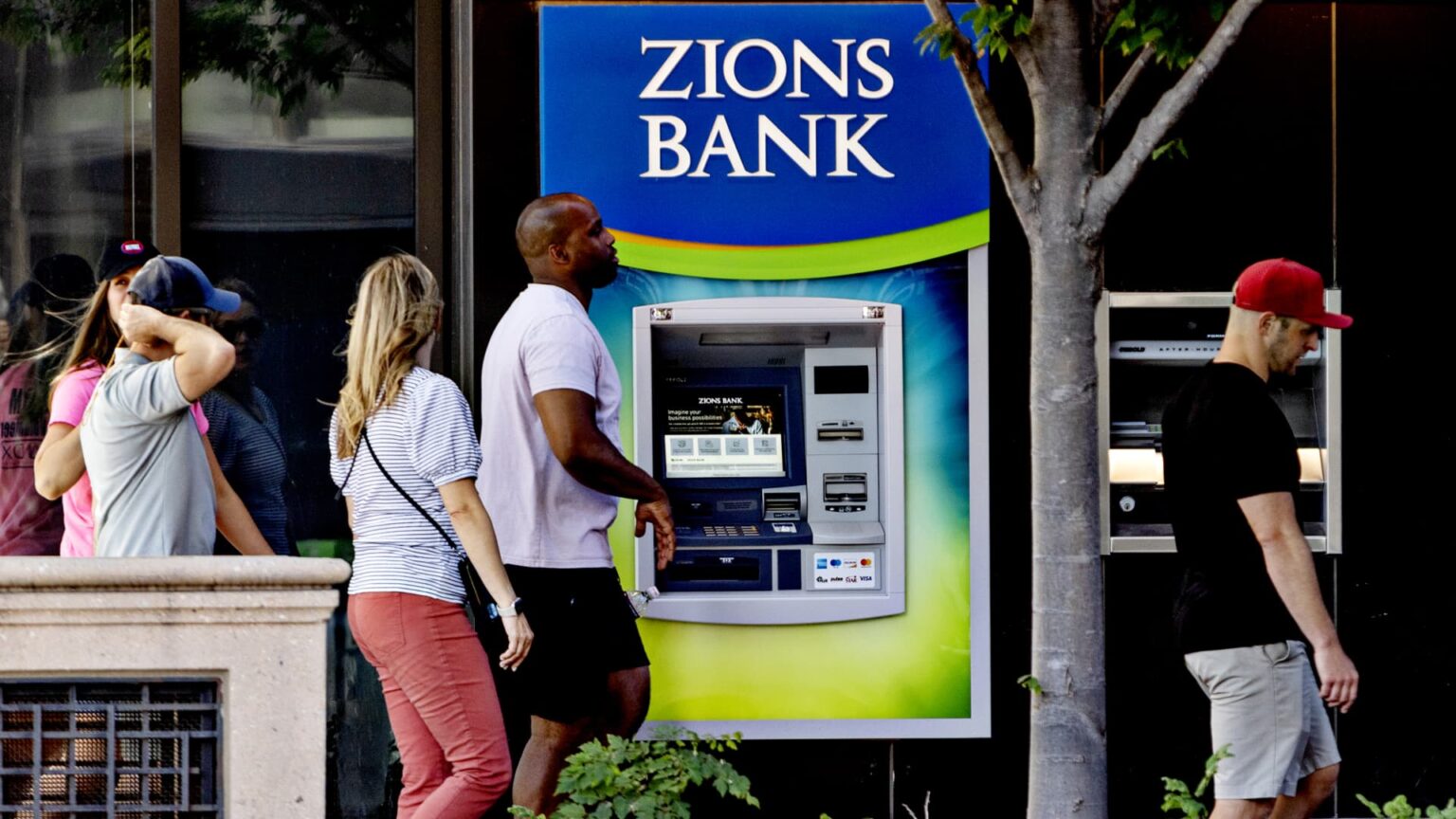A trio of regional banks faces increasing pressure on returns and profitability that makes them potential targets for acquisition by a larger rival, according to KBW analysts.
Banks with between $80 billion and $120 billion in assets are in a tough spot, says Christopher McGratty of KBW. That’s because this group has the lowest structural returns among banks with at least $10 billion in assets, putting them in the position of needing to grow larger to help pay for coming regulations — or struggling for years.
Of eight banks in that zone, Comerica, Zions and First Horizon might ultimately be acquired by more profitable competitors, McGratty said in a Nov. 19 research note.
Zions and First Horizon declined comment. Comerica didn’t immediately have a response to this article.
While two others in the cohort, Western Alliance and Webster Financial, have “earned the right to remain independent” with above-peer returns, they could also consider selling themselves, the analyst said.
The remaining lenders, including East West Bank, Popular Bank and New York Community Bank each have higher returns and could end up as acquirers rather than targets. KBW estimated banks’ long-term returns including the impact of coming regulations.
“Our analysis leads us to these conclusions,” McGratty said in an interview last week. “Not every bank is as profitable as others and there are scale demands you have to keep in mind.”
Banking regulators have proposed a sweeping set of changes after higher interest rates and deposit runs triggered the collapse of three midsized banks this year. The moves broadly take measures that applied to the biggest global banks down to the level of institutions with at least $100 billion in assets, increasing their compliance and funding costs.
Invesco KBW Regional Bank ETF
While shares of regional banks have dropped 21% this year, per the KBW Regional Banking Index, they have climbed in recent weeks as concerns around inflation have abated. The sector is still weighed down by concerns over the impact of new rules and the risk of a recession on loan losses, particularly in commercial real estate.
Given the new rules, banks will eventually cluster in three groups to optimize their profitability, according to the KBW analysis: above $120 billion in assets, $50 billion to $80 billion in assets and $20 billion to $50 billion in assets. Banks smaller than $10 billion in assets have advantages tied to debit card revenue, meaning that smaller institutions should grow to at least $20 billion in assets to offset their loss.
The problem for banks with $80 billion to $90 billion in assets like Zions and Comerica is that the market assumes they will soon face the burdens of being $100 billion-asset banks, compressing their valuations, McGratty said.
On the other hand, larger banks with strong returns including Huntington, Fifth Third, M&T and Regions Financial are positioned to grow through acquiring smaller lenders, McGratty said.
While others were more bullish, KBW analysts downgraded the U.S. banking industry in late 2022, months before the regional banking crisis. KBW is also known for helping determine the composition of indexes that track the banking industry.
Banks are waiting for clarity on regulations and interest rates before they will pursue deals, but consolidation has been a consistent theme for the industry, McGratty said.
“We’ve seen it throughout banking history; when there’s lines in the sand around certain sizes of assets, banks figure out the rules,” he said. “There’s still too many banks and they can be more successful if they build scale.”

Don’t miss these stories from CNBC PRO:
Read the full article here

